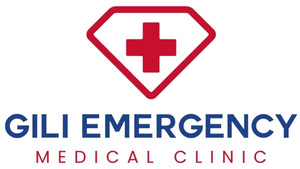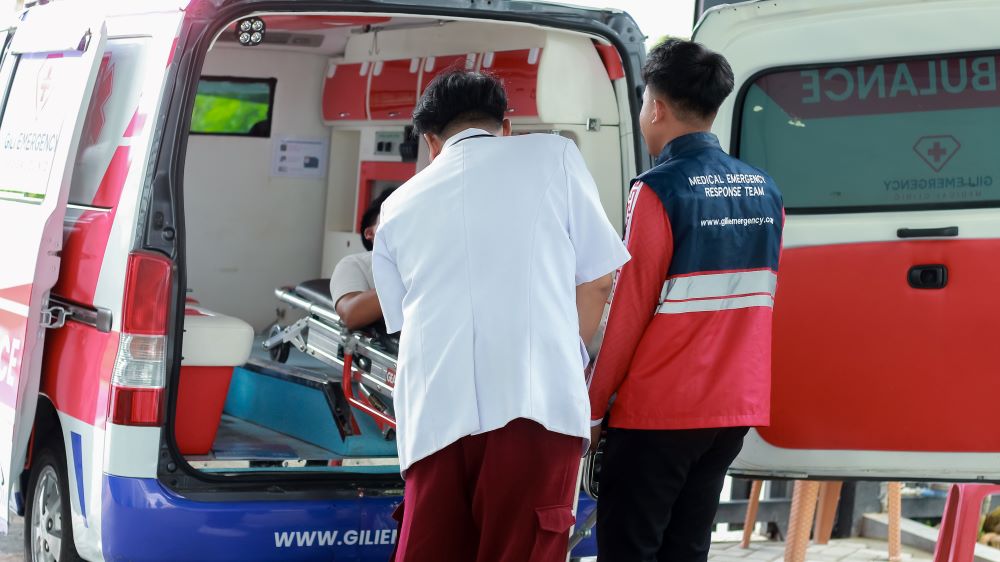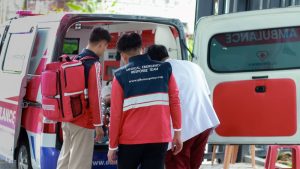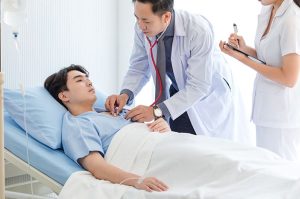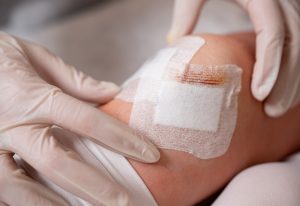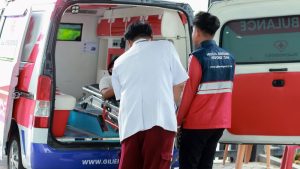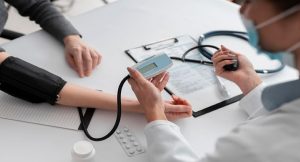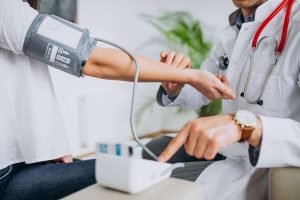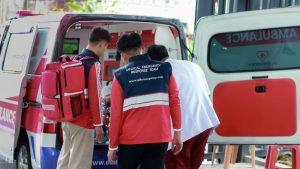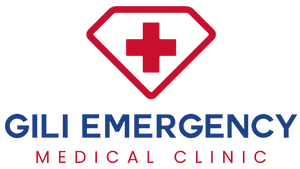When you picture a trip to the Gili Islands—whether it’s Gili Trawangan, Gili Air, or Gili Meno—you’re probably imagining clear turquoise water, sunsets that look like they’re melting into the ocean, and long, lazy days with sand stuck between your toes. But here’s something people almost never talk about: what happens if an emergency hits on a motor-free island?
That’s exactly why knowing Gili Islands how to get ambulance is so important. And in this guide, I’ll walk you through everything in a chill, friendly, super-human way—like two travel buddies chatting over iced coffee by the beach.
We’ll talk about how medical help actually works on the islands, how “ambulances” operate without cars, how to reach the Gili Emergency Medical Clinic, and what really goes down during an evacuation. I’ll also sprinkle in a bit of real-life experience, sensory details, and practical tips so you can explore the islands with total peace of mind.
Easy, helpful, and still island-vibe friendly. Let’s dive in.
Why You REALLY Need to Know About Gili Islands How to Get Ambulance
You already know the big rule of the Gili Islands: no motorized vehicles allowed. No cars, no scooters, no motorbikes—just bicycles, cidomo (horse carts), and your own two feet. That’s part of the charm, but it also changes how emergencies are handled.
A few years ago, I watched a traveler on Gili Air collapse from heat exhaustion. Instinctively, someone yelled “call an ambulance!”—but on Gili, ambulances aren’t car-based at all. Instead, a medical team from a local clinic arrived with a manual trolley, then escorted her to a speedboat for evacuation.
That moment stuck with me: if you’re visiting, you really should know the system beforehand. It could save precious minutes.
And that’s why this guide on Gili Islands how to get ambulance exists.
How Ambulance Services Work on the Gili Islands
1. No Motorized Ambulance Cars on the Islands
Let’s clear this up early:
An “ambulance” in Gili is not a siren-blazing van.
Because the islands are totally motor-free, traditional ambulances simply don’t exist. So if your idea of Gili Islands how to get ambulance involves flashing lights rushing down a road—scratch that image from your mind.
2. What “Ambulance” Means on Gili
Here’s how emergency assistance is usually handled:
- Emergency Cidomo (horse cart used for emergencies)
- Manual medical trolley transport
- On-site medical team dispatched to your hotel or villa
Often the medical staff comes to you instead of you going to them, especially if you’re immobile or in shock. And trust me, these teams work fast—they’re used to handling situations in places with sandy paths and no engines.
This is the operational backbone of what people call ambulance Gili, part of the wider Gili emergency service system.
3. Evacuation to Lombok by Emergency Speedboat
For anything serious—fractures, severe allergic reactions, heart issues, deep wounds—clinics will transport you to Lombok. And because there’s no road access, this is done via:
- Dedicated ambulance speedboats
They run day and night, and once you reach Lombok’s pier, a standard ambulance will already be waiting to take you to a larger hospital.
This combined land–sea chain is how the Gili emergency service ensures proper care.
Emergency Contact You Should Save: Gili Emergency Medical Clinic
As requested, this section focuses solely on the Gili Emergency Medical Clinic, which is one of the most reliable and frequently used facilities across the islands.
Gili Emergency Medical Clinic – Your Main Lifeline
Every island has small clinics, but the Gili Emergency Medical Clinic is known for:
- 24/7 medical assistance
- English-speaking medical staff
- On-site treatment for injuries, dehydration, infections, and minor trauma
- Coordination of evacuation speedboats
- Direct links to hospitals in Lombok
- Sending medical staff to your villa or hotel
If there’s one number you save during your trip, make it theirs. Most hotels and guesthouses have the contact readily available, so ask for it as soon as you check in.
Having this number ahead of time makes Gili Islands how to get ambulance ten times easier when seconds matter.
Types of Medical Facilities You’ll Find Across the Gilis
Even though the islands are small, help is accessible. Here’s what you’ll typically find:
1. 24/7 Walk-in Clinics
These handle:
- cuts and scrapes
- infections
- fever
- animal bites
- minor accidents
- dehydration
Most tourists go here first before any further evaluation.
2. Private Clinics with On-Call Doctors
If you prefer privacy or can’t move due to pain, on-call doctors can visit you directly. They often respond faster than you expect, especially in Gili Trawangan and Gili Air.
3. Local Pharmacies
Great for mild symptoms, basic medication, or emergency supplies.
All these facilities are connected to the broader Gili emergency service network if evacuation becomes necessary.
A Step-by-Step Guide: How to Get an Ambulance in Gili Islands
This is the practical part—the exact process of Gili Islands how to get ambulance, from the moment something happens to the final hospital transfer.
Step 1 — Contact Your Hotel or Villa First
Residents and hotel staff know the fastest route and the nearest clinic. They’re trained to handle crises calmly.
Step 2 — The Clinic Assesses Your Situation
Once informed, the clinic will decide whether to:
- send a medic to your location
- ask you to come to the clinic via cidomo
- prepare immediate evacuation procedures
Step 3 — Treatment at the Clinic
Here, the medical team determines whether you can be treated locally or need to be moved to Lombok.
Step 4 — Emergency Speedboat Evacuation
Used for:
- broken bones
- severe wounds
- heart-related issues
- severe allergic reactions
- acute asthma
- prolonged loss of consciousness
Once you’re on the boat, you’ll be transported straight to Lombok.
Step 5 — Ambulance Pickup in Lombok
An official ambulance will already be on standby at the harbor, ready to take you to the nearest hospital for full treatment.
All of this is part of the system people refer to when searching ambulance Gili, Gili emergency service, or Gili Islands how to get ambulance.
Tips to Stay Safe and Prepared on the Gilis
Here are practical, field-tested tips that make emergencies easier:
1. Stay within reasonable distance of a clinic
Before booking, check maps—not all remote beachfront bungalows are equal when help is needed fast.
2. Save the Gili Emergency Medical Clinic number on day one
Don’t wait until you’re panicking.
3. Tell your accommodation if you have medical conditions
They’ll automatically put you on their “priority assistance” list.
4. Always carry drinking water
Heatstroke is one of the most common incidents on the islands.
5. Don’t hesitate to ask locals or tourists for help
People here are incredibly supportive.
A Real Story: Why Medical Services in Gili Are More Reliable Than You Think
One afternoon in Gili Trawangan, a cyclist hit a patch of soft sand and crashed hard. The moment someone called the clinic, two medics arrived in less than ten minutes—on foot, with a portable kit. They treated the wound immediately and organized a transfer trolley.
It wasn’t dramatic like a city ambulance scene, but it was incredibly efficient. Calm, coordinated, and fast.
That’s when it hit me:
The system works because it’s designed specifically for the island environment—not in spite of it.
And that’s exactly what you’ll rely on when looking up Gili Islands how to get ambulance while on vacation.
Know the System, Travel With Confidence
Understanding Gili Islands how to get ambulance isn’t about being pessimistic—it’s smart travel. Even without ambulance cars, the islands have a well-oiled network involving medical staff, emergency cidomos, clinics, and evacuation speedboats.
With the support of Gili Emergency Medical Clinic, plus trained personnel who are used to handling situations in unique environments, you’re in safe hands.
So before you soak in the sunsets and island vibes, keep this knowledge with you. It ensures your adventure in the Gilis stays unforgettable for the right reasons.
